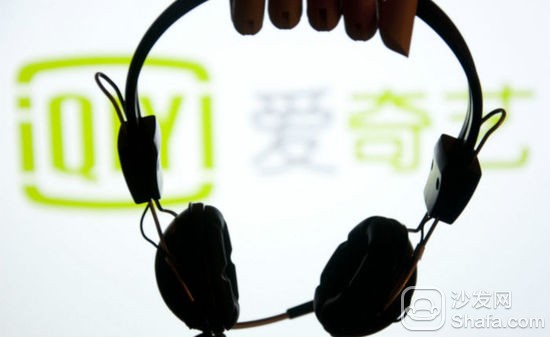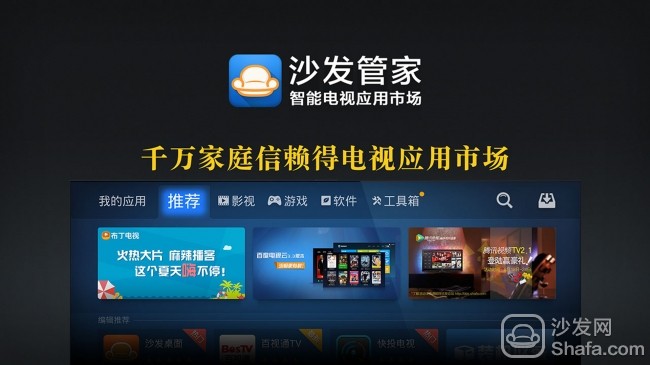
BAT's investment strategy has always been of concern to people. About Baidu's investment strategy, Tiger sniffs it as "2-2-3-4" (two major goals, two standards, three aspects, four architectures). Two main purposes: to create strategic value and financial return, and to support the sustainable and healthy growth of the ecosystem; two standards: independent financial prospects and strategic cooperation with Baidu; three aspects: strengthening core business, prospering the ecology, and facing the future; four architectures : Holding acquisition (or may be independently operated, such as iQiyi), strategic investment, venture capital (Baidu shares less than 20%) and internal incubation.
Recently, it was reported that IQI has introduced millet USD 300 million investment. From the perspective of capital operation, it is in line with the goal of “creating strategic value and financial returns and supporting the healthy growth of the ecosystemâ€. For the first time, such strong industrial investors as Xiaomi have demonstrated that Baidu’s mentality is more open.
From the perspective of capital operation, iQIYI is bound to strive for independent market
According to the data released by iResearch on the first week of June 2014, the total length of time of iQiyi's browsing exceeded that of Youku, and the latter maintained its leading position in terms of average daily coverage. Although iQiyi is not on the market, it is possible to estimate the economic benefits of iQiyi from Youku.
In 2013, Youku Potato Camp reached RMB 3.03 billion, gross profit was RMB 540 million, and gross profit margin was 18%. The income and gross profit data of iQiyi, which is comparable to Youku's body mass, will not be much different.
In 2013 fiscal year, although Youku Tudou had gross profit of 540 million yuan, net loss after deducting administrative expenses, R&D expenses and market expenses reached 580 million yuan.
Judging from the data in the past five years, Youku’s efforts to reduce the cost of potatoes have achieved remarkable results. In 2009, administrative, market, and research and development expenses accounted for 70% of revenue, and in 2013, only 40%.

Although Iqiyi did not disclose relevant data, some clues can be seen from Gong Yu's remarks. Earlier this year, Gong Yu said to the media: “Some people say that iQIYI and several other peers are losing hundreds of millions of dollars? I’m normal, but after making a loss, it’s a market economy; there are people who ask me if I have a company. ) Is the profit hundreds of millions normal? I'm sorry, I don't know about this."
Earth people know that iQIYI is Baidu's traffic "feeding" big. If Iggy Art is an independent listed company like Uniland, the amount of traffic that will be handed over to Baidu each year will be in the hundreds of millions. Currently, though Baidu has incorporated the advertising revenue of iQIYI, it has to bear the content and operating costs, and it is still unable to collect traffic charges. It is estimated that there will be losses and no gains. Baidu's P/E ratio is more than 40 times, and for each additional 100 million U.S. dollars of net profit, the market value will increase by more than 4 billion U.S. dollars.
To sum up, letting iQIQI's independent listing is in full compliance with the purpose of “creating strategic value and financial return†is an important step to optimize the organizational structure and gain investment returns.
However, the conditions for iQiyi’s independent listing at the moment are not sufficient.
Iqiyi and Xiaomi are complementary
Look at iqiyi first. This year was a good year for the listing of China's stocks. Alibaba, JD.com, etc. landed on the capital market through the tide. Ali set a record of raising $25 billion in IPO financing. Gong Yu revealed that he had gone to the United States earlier this year and used his own words to say that he "systematically met investors." In view of the poor performance of Youku, Tudou, Cool6 and other video websites after listing, investors' feedback to Gong Yu is estimated to be at a profit or loss level or at least a clear starting point for profit!
In fact, profit is not a necessary condition for the listing. Jingdong and Qunar have no profit. For iQIYI, the key is to tell different stories from Youku Tudou. For example, referring to Thunder, the concept of "millet ecology" was introduced. The status and prospects of iQiyi's industry are far from being comparable to the thunder of Xishan. After Xiaomi was introduced, sitting on a large group of hardware users and integrating it into the ecological chain had the advantage that Youku Tudou did not have, and profitability was not necessary.
Look at Xiaomi here. With regard to the value of Iqiyi to Xiaomi, everyone has already seen it very clearly.
As we all know, Xiaomi is seeking a new round of financing, and the valuation is in the range of 40 to 50 billion US dollars. There are different voices in this industry, and it can be seen from the sniffing of the article's title. Such as "How Xiaomi Supports the Estimate of 50 Billion Dollars," and "Why Millie's Maximum Value Is 20 Billion Dollars." Perhaps we did not expect that potential investors should be convinced that Xiaomi’s valuation will exceed 800 billion yuan in the future and will only have confidence in the investment (JD’s valuation in 2013 was no more than US$15 billion, and once it was listed, it was shot up to US$40 billion. ).
Today’s $40 billion has been questioned, and I’m afraid that there will be more questions about tomorrow’s $80 billion. The 80 billion U.S. dollars means that Xiaomi will be tied with BAT as "China's Big Four Internet Companies." However, as an electronic consumer company, Xiaomi basically belongs to “poor and white†in terms of content. As Lei Jun said: “The content industry is a major event for Xiaomi TV, Xiaomi Box, and Xiaomi Mobile Phone, including the Xiaomi Tablet. We work such a good TV, but our content is not rich enough, so the consumer complaint is very large. Therefore, solving the content issue has become an impending problem for Xiaomi."
Looking back, persuading Chen Xi to join in and using the “ecosystem†to impress investors is inseparable from the “X and Y projects†that are “talking, please keep confidentialâ€. The truth is now clear. The original X = iQiyi, Y = Youtu.
Provided by Thunder, Cloud Services, UGC Content in the Gathering Era, “Three Rockets†in Cheetah and Jinshan (why Wang Xiaochuan’s ideas are still valid here), and one billion US dollars to turn short content into long items in one step (handy) Chen Hao was brought in. The "800 billion U.S. building" of the co-owner Xiaomi was considered to be an eyebrow.
From the business layout to the capital operation, iQiyi and Xiaomi have strong complementarity, but the urgency of the two parties is very different. Although iQiyi's independent listing is necessary, but it is not urgent, Xiaomi's new round of financing must be settled as soon as possible. In general, who is more active and urgent in the cooperation, whoever wants to make greater concessions. Although the details of the participation in the iQIYI have not yet been announced, it is expected that Baidu's "good" will be more.
Iqiyi is where to go and where to go
The "middle page" is the concept proposed by Li Yanhong in 2011, referring to an intermediary service provider that serves as a bridge between search engines and the vertical industry.
In 2011, Baidu subscribed for 62% of the nets for a price of US$306 million. In 2013, where to go to the United States where the market, Baidu's shareholding value rose to 1.75 billion US dollars, a sudden increase of 472% in two years. Where to become a successful example of Baidu's implementation of the "middle page" strategy.
In early 2010, Baidu and Providence Capital formed a video website Fantastic Art Network and later changed its name to Iqiyi.com. Since its establishment, the company has been positioned as a "middle page company." In August and December 2011, Baidu spent US$45 million to subscribe to the Fantastic Art B round of preferred stock. In December 2012, Baidu completed the acquisition of the vast majority of iQiyi’s shares and consolidated its financial data into financial statements. On May 7, 2013, Baidu purchased PPS video services for US$370 million and PPS will operate as a subsidiary brand of iQiyi. It is reported that between Baidu and iQIYI, there is also a "tradable exchange equity agreement" similar to Qunar.com. From the "middle page" position to the path to obtain investment income, iQiyi can be said where to go.
However, Iqiyi is not where to go.
Regardless of where to go before the investment or after the investment, there is no strong investor among the local net shareholders. Baidu's authority on where to go is unquestionable. If one insists on where to go as a model, it means that the scope for finding the target is small and the mode of cooperation is single. I wonder if because of some reflections, since last year, Baidu’s investment attitude has become more open, and the investment scale for companies such as Wanxue Education and ZhiTu.com has been on the order of 10 million US dollars and they are all holding shares rather than holding shares. Based on the comprehensive online data, Baidu has invested in 80% of China-Africa’s holdings of acquisitions.
It is unusual for Baidu to cultivate and accumulate billions of dollars in love. It is not a "sister," nor "a son," but a "pro-son." Baidu is not short of money and loves Fantastic Art has no survival crisis. It is able to introduce millet as a strong industrial investor (not a financial investor), indicating that Baidu’s mentality is more open than before.
Recommended installation sofa butler Download: http://app.shafa.com/
